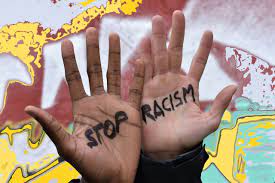trumps truth
Trump's Truth: The Deception and Damage of Post-Truth Politics
Donald Trump, the former president of the United States, was known for many things, including his bombastic rhetoric, his unconventional style, and his prolific use of social media. One of the most controversial aspects of his leadership, however, was his relationship with the truth. Trump often made false or misleading statements, ignored or dismissed evidence that contradicted his beliefs, and attacked the media, science, and experts who challenged his worldview. Trump's truth was not based on facts or reason, but on his own subjective preferences and interests, and on his ability to shape the narrative and manipulate public opinion.
Post-truth politics is not a new phenomenon, but it has gained prominence and power in recent years, fueled by the rise of populist movements, the decline of trust in institutions, and the proliferation of digital platforms. Post-truth politics refers to a mode of political discourse in which emotions, opinions, and beliefs matter more than facts, evidence, and expertise. Post-truth politicians often appeal to the fears, prejudices, and resentments of their supporters, and present themselves as anti-establishment, anti-elite, and anti-intellectual. Post-truth politics can be seen as a form of epistemic injustice, as it devalues and dismisses the efforts of those who seek to pursue truth, knowledge, and understanding.
Trump's truth was a prime example of post-truth politics, as he often made outrageous claims that were not supported by evidence, or contradicted by facts. For example, Trump claimed that he won the 2020 presidential election, despite overwhelming evidence to the contrary, and launched a campaign to challenge the results, based on conspiracy theories and false allegations of fraud. Trump also downplayed the severity of the COVID-19 pandemic, ignored or rejected the advice of public health officials, and promoted unproven or dangerous treatments, such as hydroxychloroquine or bleach. Trump also attacked the media, calling them "fake news" and "the enemy of the people", and used social media to spread propaganda, disinformation, and hate speech.
Trump's truth had several consequences, both for the US and for the world. First, Trump's truth eroded the trust in democracy, as many of his supporters believed that the election was stolen from him and that the system was rigged against them. This led to the January 6th insurrection, when a mob of Trump supporters stormed the Capitol building, in an attempt to overturn the election and stop the certification of the results. Second, Trump's truth undermined the credibility of science and expertise, as he often contradicted or ignored the advice of scientists, doctors, and public health officials, and promoted alternative narratives that were not based on evidence or logic. This contributed to the spread of misinformation and disinformation, which hampered the efforts to control the pandemic, and endangered the lives of millions of people. Third, Trump's truth polarized society, as he often used divisive rhetoric, such as calling immigrants "rapists" or "criminals", or denouncing protesters as "thugs" or "leftists". This fueled the culture wars, and deepened the divisions between different groups of people, based on race, gender, religion, or ideology.
Trump's truth is not the only example of post-truth politics, nor is it the most extreme or dangerous. However, it is a potent reminder of the fragility of truth, and the importance of defending it, especially in times of crisis and uncertainty. Truth is not a matter of opinion or preference, but a shared commitment to seeking and acknowledging the best available evidence, and using it to make informed decisions and solve problems. Truth requires humility, curiosity, and openness to feedback and correction
How to Find the Truth Behind Trumps Tweets
Finding the truth behind Donald Trump's tweets can be a challenging task, given his history of making false or misleading statements, using inflammatory or hyperbolic language, and ignoring or dismissing evidence that contradicts his claims. However, there are some steps you can take to evaluate the credibility, accuracy, and relevance of Trump's tweets, and to distinguish between facts, opinions, and propaganda.
Check the source: Before you retweet or share a Trump tweet, verify that it comes from his official account (@realDonaldTrump or @POTUS) and not from a parody or fake account. You can also check the timestamp, the number of likes, retweets, and comments, and the context in which the tweet was posted, to see if it is recent, popular, or related to a specific event or issue.
Check the content: Read the tweet carefully, and look for any claims, statements, or assertions that can be fact-checked or verified. Check the spelling, grammar, and punctuation, as well as the tone, style, and language used, to see if it is consistent with Trump's usual communication style. You can also search for keywords or hashtags used in the tweet, to see if they are trending or related to other sources of information.
Check the evidence: Look for any links, sources, or references provided in the tweet, and evaluate their credibility, relevance, and accuracy. Check if the sources are reputable, independent, and verifiable and if they provide sufficient evidence to support the claims made in the tweet. If there are no sources or references provided, you can search for them yourself, using search engines, fact-checking websites, or news outlets.
Check the context: Consider the context in which the tweet was posted, and how it relates to other tweets, statements, or actions taken by Trump or other political figures. Look for any patterns, contradictions, or inconsistencies, and try to understand the motives, goals, and strategies behind the tweet. Consider also the audience, and how the tweet might affect their perceptions, beliefs, or behaviors.
Check multiple sources: Verify the information in the tweet by checking multiple sources, such as news websites, fact-checking websites, academic papers, or official reports. Look for independent, authoritative, and diverse sources, and compare their perspectives, interpretations, and conclusions. Avoid relying on a single source or a single perspective, as it may be biased, incomplete, or misleading.
By following these steps, you can improve your ability to find the truth behind Trump's tweets and to make informed decisions and opinions based on reliable, accurate, and relevant information. Remember that truth is a shared responsibility, and that we all have a duty to seek, respect, and defend it, especially in times of uncertainty, complexity, and polarization.











Comments
Post a Comment